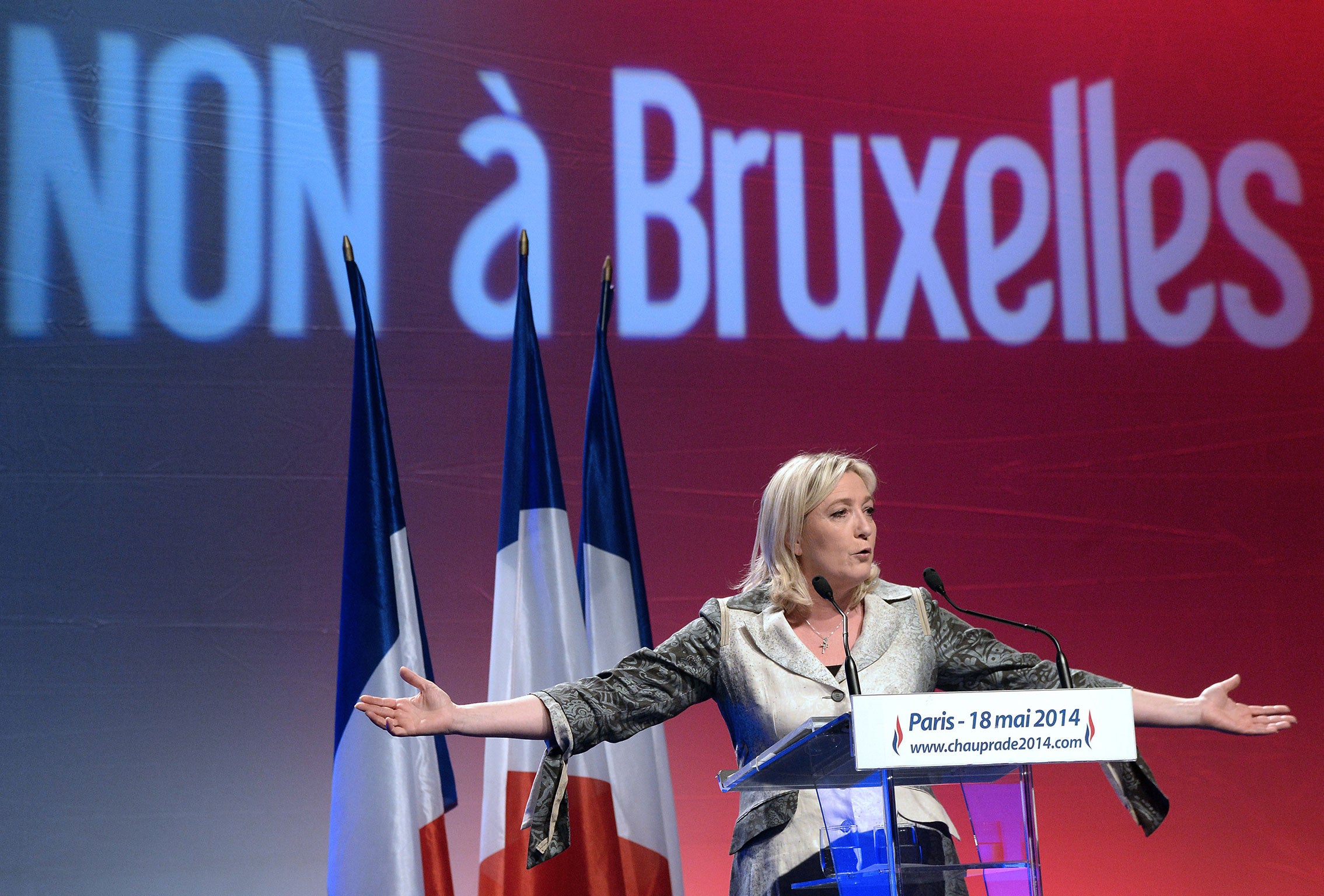European Parliament Election: David Cameron may be forced into alliance with Europe's far-right

David Cameron faces the embarrassment of witnessing the collapse of the right-wing grouping he created in the European Parliament.
The Conservatives could be forced to forge alliances with nationalist parties with hardline views on immigration in order to keep the European Conservatives and Reformists (ECR) coalition alive after this week’s elections.
Its survival is in the balance as voters prepare to return more MEPs with staunchly Eurosceptic views to the Parliament, paving the way for fresh deals between the right-wing parties that will fill the seats in Brussels and Strasbourg.
Mr Cameron set up the ECR following his promise in the Tory leadership contest to take the Conservatives out of the centre-Right European People’s Party whose members include Angela Merkel’s Christian Democratic Union.
The ECR has 57 members drawn from 11 EU states, although it is dominated by the Conservatives (26), the Czech Civic Democratic Party (nine) and 12 Polish MPs of varying allegiances.
But polling suggests the alliance could shrink to just 40 members from six countries, with Poland’s Law and Justice party having more representatives than the Tories.
That would be a disastrous outcome for Mr Cameron and his allies, as alliances need to contain members from seven states to become an official grouping which receives cash and posts in the Parliament.
Under those circumstances, the ECR would then have to recruit allies if it wanted to avoid implosion. That could lead the Prime Minister into some very murky waters.
Conservative MEPs have put out feelers to the Finns Party, which has described immigrants as “parasites on taxpayers’ money” and suggested ethnically Finnish women should have more babies. It is also courting the Danish People’s Party, which is strongly critical of Muslim women wearing headscarves in public.
An alternative ally could be NVA, a separatist party pressing for Flanders to break away from Belgium, a link that would sit uncomfortably with the Tories’ fierce opposition to Scottish Nationalism.
Writing on The Independent’s website, Gareth Thomas, the shadow Europe minister, says: “Conservative MEPs are already stranded at the margins of the European Parliament, but for his MEPs to be even further isolated would undermine David Cameron’s ability to negotiate for Britain’s interests in Brussels.”
The dramatic surge of support for the UK Independence Party is echoed by growing popularity across the Union for groups which are instinctively suspicious of Brussels (although some stop short of calling for their countries to quit the EU) and hostile to immigration.
One big winner could be Marine Le Pen’s Front National in France who has worked hard to distance her party from its extreme-right origins and whose number of MEPs is predicted to rise from three to more than 20.
Other nationalist parties on the move include the Dutch PVV, whose leader Geert Wilders has equated Islam with fascism, and the Austrian Freedom Party, which has condemned same-sex marriage.
The strength of parties of the far-right, which is expected to be mirrored by growing in support for the far-left this week, will mean nationalist parties wielding far more power and influence in the new Parliament.
Join our commenting forum
Join thought-provoking conversations, follow other Independent readers and see their replies
Comments
Bookmark popover
Removed from bookmarks